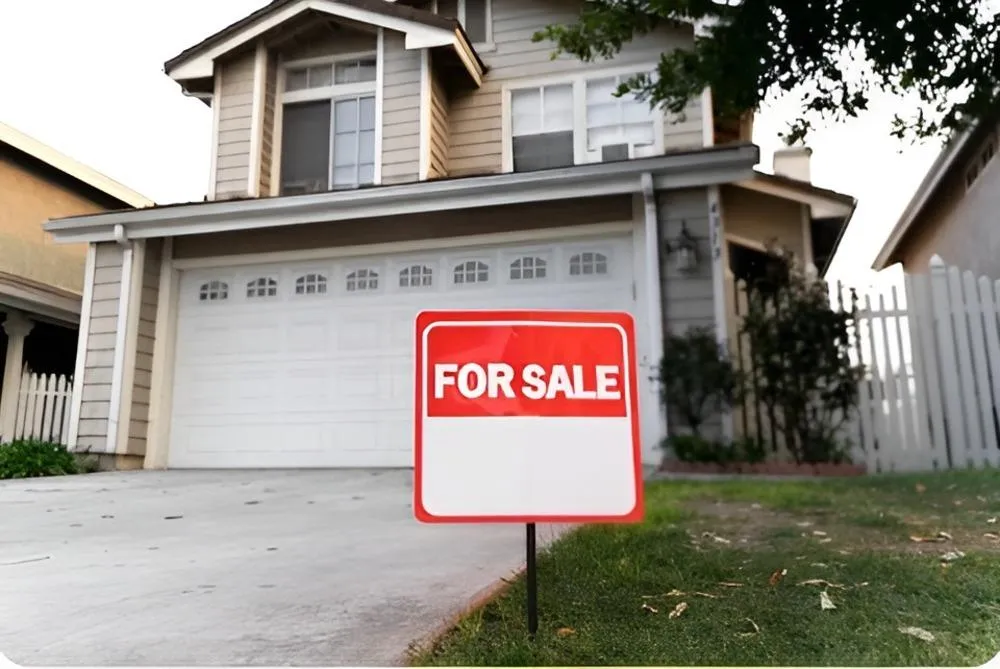
How to Sell a Rental Property in Dallas–Fort Worth | Refind Realty DFW
How to Sell a Home That Was a Rental in Dallas/Fort Worth
By Steven J. Thomas

Direct Answer
Selling a home that’s been used as a rental in Dallas–Fort Worth requires a different approach than selling an owner-occupied property.
You’ll need to:
Understand your tenant situation and legal obligations,
Evaluate the property’s condition and market positioning, and
Decide whether to sell vacant or tenant-occupied for the best return.
With the right preparation, rental homes can attract both homeowners and investors — and sell faster than you think.
Step 1: Check Your Lease and Tenant Status
Before listing, confirm:
Lease end date and any renewal clauses.
Notice requirements to vacate or show the property (per Texas Property Code).
Security deposit handling and required accounting after sale.
If the lease is active, you can either:
Sell with tenant in place (to another investor), or
Provide proper notice to vacate before marketing to owner-occupant buyers.
📋 Tip: Coordinate with your property manager or review your lease to ensure all notices and timelines are compliant before listing.
Step 2: Decide — Vacant Sale or Tenant-Occupied Sale
Both options work, but each serves a different buyer type.
OptionIdeal BuyerProsConsSell VacantHomeowner or investorEasier showings, higher emotional appealTemporary vacancy costs, turnover expensesSell OccupiedInvestorImmediate income stream, no downtimeLimited showing flexibility, possible wear-and-tear
💡 Pro Tip: If your tenant is reliable and the lease is under 12 months, selling occupied can attract investors looking for turnkey rental income.
Step 3: Evaluate Condition and ROI on Repairs
Rental properties often show more wear than owner-occupied homes.
Focus on high-impact, low-cost updates that matter most to buyers:
Fresh paint, flooring, and lighting.
Deep clean and professional landscaping.
Address safety or deferred maintenance items.
If your goal is top-market resale value (not investor-only pricing), consider minor cosmetic improvements to make it move-in ready.
📈 Use my Home Seller Score to evaluate which repairs make financial sense before you spend a dollar.
Step 4: Gather Your Financial and Compliance Docs
Buyers and their lenders may ask for:
Current lease and payment history.
Security deposit details.
Past repair or upgrade invoices.
HOA compliance letters (if applicable).
Utility averages (helpful for investors).
Being organized builds trust and keeps your transaction moving.
Step 5: Choose the Right Selling Strategy
Depending on your goals, you can market your property three ways:
1. Retail Sale (Vacant)
Maximize your buyer pool by listing after tenants move out and completing any necessary updates.
Best if: you want to attract owner-occupants and top pricing.
2. Investor Sale (Tenant in Place)
Market directly to investors seeking rental income from day one.
Best if: your tenant is current, cooperative, and on lease terms that transfer easily.
3. Institutional Offer or Cash Program
Skip showings and repairs by requesting a cash-backed offer through programs like SureSale or Homeward Cash Offer.
Best if: your home needs work or your tenants just moved out.
🧭 Compare your options here: Home Selling Options
Step 6: Optimize Marketing for the Right Buyer
Rental homes appeal to two audiences — investors and owner-occupants — and your marketing should speak to both.
For Investors:
Highlight rental history, cash flow potential, and tenant quality.
Include neighborhood rental comps and management history.
Emphasize proximity to employers, universities, or high-demand areas.
For Homeowners:
Showcase upgrades, curb appeal, and move-in readiness.
Focus on lifestyle benefits and nearby amenities.
Use clean, professional photos and a neutral color palette post-turnover.
📲 Use the Lone Star Living App to monitor buyer demand in your area and identify competing listings.
Step 7: Plan for Tax Implications
Selling a rental involves different tax rules than selling your primary residence.
Consult your CPA about:
Capital gains taxes on appreciation.
Depreciation recapture from previous years.
1031 Exchange options if reinvesting in another property.
Proactive planning can help you keep more of your profit.
Step 8: Use an Agent Experienced With Investment Sales
Selling a rental is more complex than a traditional listing.
You’ll need:
Knowledge of tenant laws and investor disclosures.
Access to both retail and investor networks.
Guidance on pricing across dual markets (owner vs. investor).
At Refind Realty DFW, I manage both types of sales — from single-family rentals to multi-unit portfolios — while coordinating clean transitions for your tenants and buyers.
Example: The Arlington Rental Sale
A landlord in Arlington owned a 4-bedroom single-family rental with long-term tenants.
After a lease renewal, they wanted to cash out and buy a new build in Waxahachie.
We:
Negotiated early tenant cooperation for showings.
Listed the property targeting both investors and families.
Secured a full-price offer in 10 days from an investor buyer who kept the tenants in place.
Result: no vacancy, no make-ready cost, and seamless transition to their next home.
Conclusion
Selling a rental in Dallas–Fort Worth takes coordination — but with the right plan, it can be smooth and profitable.
Understand your lease, prepare strategically, and position your home for the right audience.
Then, use structured programs to move forward confidently into your next chapter.
📊 Get Your Home Seller Score
🏡 Compare Home Selling Options
📅 Book a Home Goals Consultation
Key Takeaways
Review your lease and comply with tenant laws before listing.
Decide whether to sell vacant or occupied based on your goals.
Target investors or homeowners with tailored marketing.
Prepare financially and account for taxes and depreciation.
Use an agent experienced in both investment and traditional sales.
Custom HTML/CSS/JAVASCRIPT